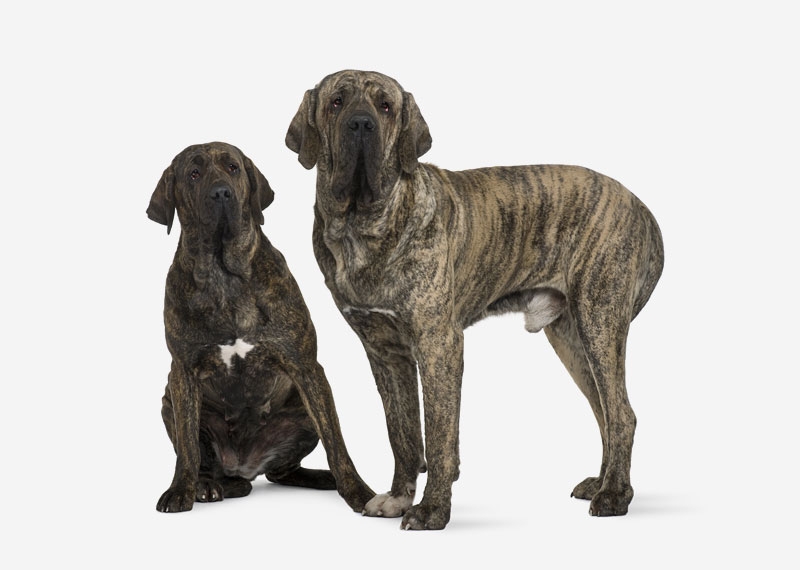The Fila Brasileiro also known as the Brazilian Mastiff is a large working breed of dog developed in Brazil. It is known for its superb tracking ability, aggressiveness and an unforgiving impetuous temperament. When a Brazilian Mastiff finds its quarry, it does not attack it, but rather holds it at bay until the hunter arrives. Owing to these qualities, the Brazilian Mastiff is used as a guard dog, as a shepherd dog for herding livestock and as a hunting dog for tracking and controlling large prey. When slavery was legal in Brazil, the Brazilian Mastiff was used to return fugitives unharmed to their slave masters. Owing to its size, temperament and potential for aggression, the Brazilian Mastiff has been banned in many countries.
History
The Fila Brasileiro is believed to have been evolved from a number of breeds,the English Mastiff, the Bulldog, Bloodhound & The Rafeiro do Alentejo. The Fila Brasileiro breed was bred and raised primarily on large plantations and cattle farms where they were originated.They were taught to chase down jaguars, cattle, and other animals, as well as runaway slaves. The dogs would grab the slave or animals by the neck and hold them until the farmer arrived. This instinct can be observed among puppies when they are playing.The first written standard of the breed was edited in 1946. The Paulistas were responsible for organization a planned breeding program, opening a stud book to register dogs. Dr. Paulo Santos Cruz, began to systematically breed the Fila Brasileiro and also contributed largely in setting the CAFIB standard, and who now therefore, has the right to be called the "Father" of the Fila Brasileiro. About the registries, CBKC (Brazilian Confederation Kennel Club) follows the FCI (Federation Cynologique Internationale) policy and accepts for registration only dogs with FCI pedigrees orientating the breeders to make a hip dysplasia control and besides other health problems. The Fila Brasileiro is described as a Brazilian Mastiff or a Brazilian Molosser. In the U.S., the OFA (Orthopedic Foundation for Animals) does a statistical registry of all Filas that were x-rayed to diagnose hip dysplasia. The Brazilian army compared this breed to Doberman Pinschers and German Shepherds in a five year study using these dogs in the jungle under extremely hostile conditions. The following traits were observed: intelligence, aggressiveness, sensibility, temperament, energy, resistance, rusticity and strength. German Shepherds were found to have the highest intelligence and Doberman Pinschers the highest level of aggression. The Fila Brasileiro was found to be superior in every other category.
In popular culture
- It has been assumed that the bloodhound face is used as a logo for the main antagonist "Elite Hunting Club" in Hostel (2005 film), Hostel: Part II, and Hostel: Part III respectively. This is actually a Fila Brasileiro or Brazilian Mastiff.
- Spike in commercial Mc Donalds






